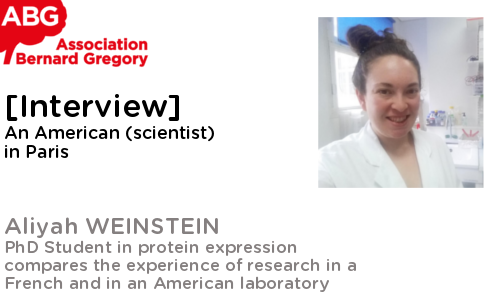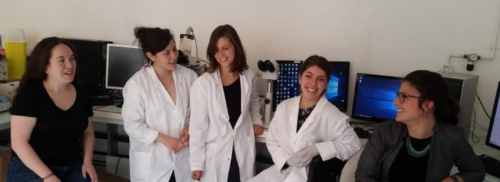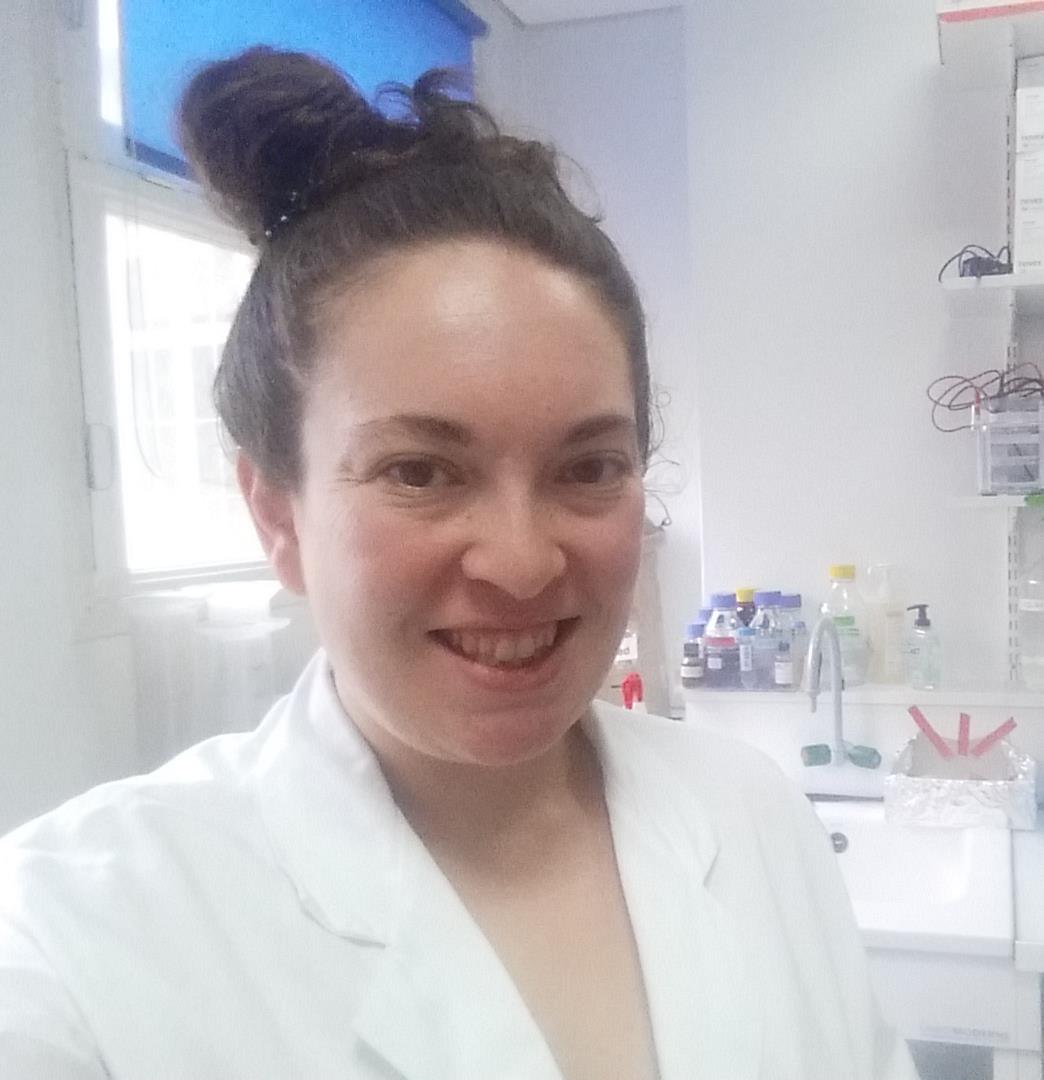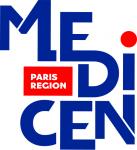An American (scientist) in Paris
Interview by Bérénice Kimpe (Head of International Department)
Making international moves in the name of science is not uncommon. Whether for a job opportunity that can’t be passed up or because of a desire to live and work in a specific country, international mobility in science is likelihood in many scientist’s lives. This kind of move may come at any point during a scientist’s career; for me, it came in the middle of my PhD studies.

In January of this year, I made the move from the United States to do six months of research in Paris. For the last three months, I have been working at the Centre de recherche des cordeliers (Cordeliers Research Center), where I am studying protein expression patterns in colon cancer.
Finding funding
During my fourth year of grad school at the University of Pittsburgh, I was awarded a Chateaubriand Fellowship from the Embassy of France in the United States. Since I have been studying French since the age of 11, it had long been a goal of mine to spend some time living in Paris. The fellowship allows STEM doctoral candidates studying in the United States (there is an equivalent fellowship for humanities and social sciences students) to spend 4 to 9 months performing research in a French laboratory of their choosing. The fellowship pays a monthly stipend of up to 1400 Euros per month (depending on your other sources of funding) and covers travel costs and health insurance. In addition, because the fellowship is through the French Embassy, it comes with a support system to help with the visa application process!
The major components of the application are a joint research proposal from the U.S. and French labs and letters of support from each lab. While for some fellows the French lab is one with which they’ve collaborated during their research in the United States, in my case, I identified my French lab by looking through papers I had cited in an article I wrote soon before preparing my application. Without ever having had previous contact with the PI I am now working for, I reached out to discuss a project I had in mind using their expertise in clinical research.
A distinct advantage for Chateaubriand fellows in negotiating with a potential host lab is that we bring our own funding - in my case, that was a major factor in my proposal being accepted by my host lab. The rest of the application requires identifying an anticipated starting date in the French lab and how many months of funding would be necessary to complete the proposed project. Finally, the process requires an agonizing waiting period between the submission deadline (January) and the announcement of the results (May)!

Differences in lab dynamics
Something that has interested me since beginning my research in France is the similarities and differences between how labs are structured and how projects are directed between the two countries.
While French labs tend to be organized into larger teams or centers focused on a specific topic, labs in the United States are generally smaller and include a single professor directing their own focused research group. In particular, in the United States, grad students and postdocs usually have their own project that may be supported by other members of the lab, whereas in France, a team of researchers is often collaborating on a project- including engineers and technicians, for whom there are many more levels of specialized training.
Nonetheless, I’ve encountered a similar style of mentoring between the labs I have worked in in each country: lab meetings, journal clubs and one-on-one meetings with PIs are standard. One distinct advantage that I’ve found in my French lab is that due to regulations on working hours at the center, there is less of an expectation to work into the night or on weekends compared to my university in the United States; this also means that lab members work generally the same hours, which bolsters exchange of ideas.
Socializing in science
A big difference between the culture of research in the United States versus France is the social aspect. In the United States there are more often events organized by individual labs, department, or campus organizations: events such as lab meetings and seminars often include food and drinks, and happen approximately once per week. For grad students and postdocs in the United States, it is furthermore common to find student and postdoctoral organizations at a university organizing professional development and social events to help students and postdocs develop their networks both on- and off-campus. Combining professional development events with informal time to socialize and network gives trainees an opportunity to interact with renowned speakers in a non-intimidating setting.
For example, I have had breakfast with Ivy League professors, lunch with directors of national scientific societies, and dinner with an executive from Pfizer, and enjoyed getting to pick their brains about how they got to their current positions. Events with other grad students and postdocs, including bowling outings and happy hours as well as data clubs and career development workshops, are also common, and are relaxed ways to develop a stronger connection with classmates on both a personal and professional level. In my experience in France, lab and department events seem to focus more singly on professional development, and professors (not students or postdocs) exclusively interact with invited speakers.
Final advice
Whether you spend a few months or many years living and working outside your home country, the experience will be life-changing. In the few months I have been in France, I’ve learned that I can be self-sufficient when thrown into a challenging situation. I have also grown scientifically, as I’ve learned new laboratory techniques and gained knowledge in bioinformatics and pathology from my new lab members.
No matter the reasons behind a move abroad, it leads to an enhanced perspective on other cultures, on the practice of science, and on your own capability to adapt to new circumstances. It also poses unique challenges, but anticipating some of the differences in lab culture and taking everything new in stride can help with the adjustment. For scientists considering a move abroad, my advice is to go for it!
 Aliyah Weinstein is a 4th year graduate student in immunology at the University of Pittsburgh and a STEM Chateaubriand Fellow at the Cordeliers Research Center in Paris, France, where her research focuses on the tumor-immune microenvironment. Outside of the lab, she’s interested in writing and traveling. You can find Aliyah on LinkedIn, Twitter, and her blog.
Aliyah Weinstein is a 4th year graduate student in immunology at the University of Pittsburgh and a STEM Chateaubriand Fellow at the Cordeliers Research Center in Paris, France, where her research focuses on the tumor-immune microenvironment. Outside of the lab, she’s interested in writing and traveling. You can find Aliyah on LinkedIn, Twitter, and her blog.
ABG is a French non-profit organization. Our missions are :
- To facilitate the transition of PhDs (whatever their field and seniority) from academia to the private sector;
- To help companies recruit PhDs.
Vous souhaitez recevoir nos infolettres ?
Découvrez nos adhérents
 ONERA - The French Aerospace Lab
ONERA - The French Aerospace Lab  Aérocentre, Pôle d'excellence régional
Aérocentre, Pôle d'excellence régional  Groupe AFNOR - Association française de normalisation
Groupe AFNOR - Association française de normalisation  ASNR - Autorité de sûreté nucléaire et de radioprotection - Siège
ASNR - Autorité de sûreté nucléaire et de radioprotection - Siège  ADEME
ADEME  Medicen Paris Region
Medicen Paris Region  Généthon
Généthon  Servier
Servier  ANRT
ANRT  SUEZ
SUEZ  Ifremer
Ifremer  Institut Sup'biotech de Paris
Institut Sup'biotech de Paris  Nantes Université
Nantes Université  TotalEnergies
TotalEnergies  Tecknowmetrix
Tecknowmetrix  Nokia Bell Labs France
Nokia Bell Labs France  Laboratoire National de Métrologie et d'Essais - LNE
Laboratoire National de Métrologie et d'Essais - LNE
